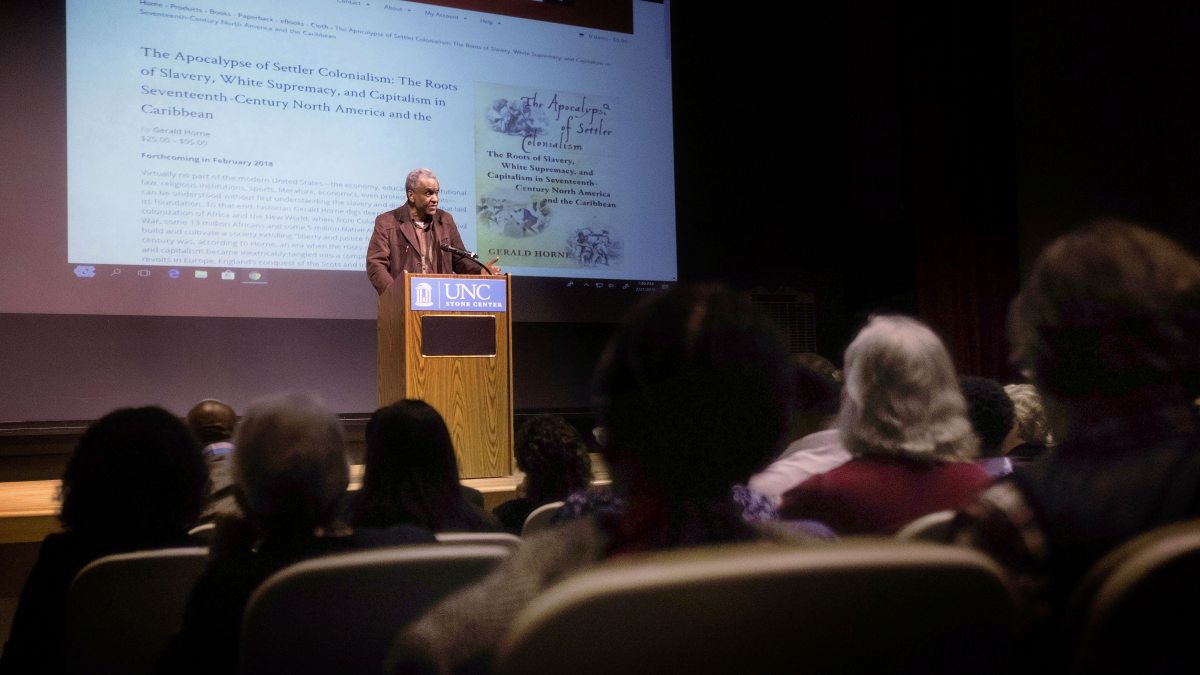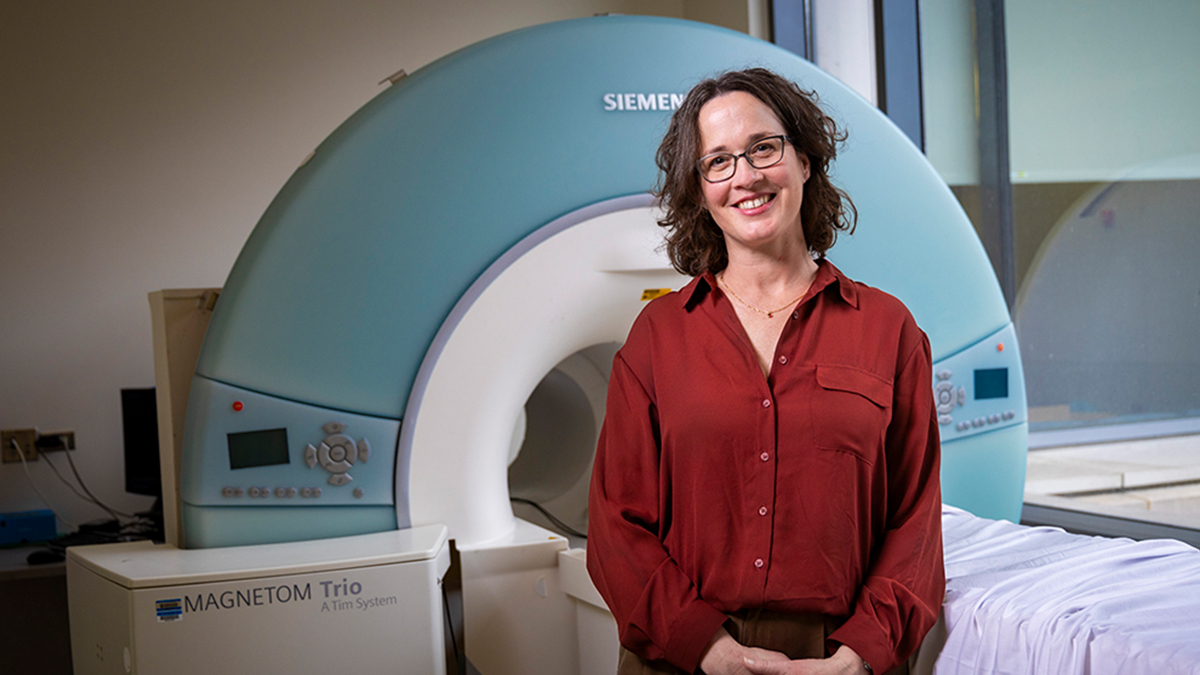Annual African-American History Month Lecture re-examines the past
Keynote speaker Gerald Horne reexamined examples from colonial history to more recent events, presenting his vision for a way forward.

Gerald Horne believes that to fully understand the current state of affairs in the United States, you first need to truly understand the history that has led to it.
As the keynote speaker of the 14th annual African-American History Month Lecture on Feb. 21, Horne sketched an alternative narrative of U.S. and African-American history, reframing colonial history in a way to better understand modern-day injustices
“The thesis of my talk this evening is simple: black lives do not matter and have not historically because the settler colonialism that formed the basis for the resultant U.S.A. was structured this way,” said Horne, the John J. and Rebecca Moores Chair of History and African American Studies at the University of Houston.
The annual lecture, held at the Lecture at the Sonja Haynes Stone Center for Black Culture and Heritage, was just one of many of Carolina’s Black History Month events. Throughout February, University organizations are hosting lectures, panels and other events to celebrate the observance.
Chancellor Carol L. Folt called the two-hour lecture an exciting and important opportunity to continue frank discussions on racial issues.
“This lecture is a really terrific venue to hear speakers give their own stories to the world and make us think, inspire our community and challenge us as well to do better as a school, as a community and as a nation,” she said.
Before Horne’s keynote, Folt recognized former faculty member Colin Palmer as the newest honoree of the University’s Bridge Builder scholarships, which recognize individuals whose work, advocacy and personal examples helped fulfill Carolina’s mission as a public university.
Palmer became the first African-American chair of a major department at the University when he was appointed to lead the history department in 1986, a post he held until 1991.
“This is one of the giants that we have all looked to,” said Joseph Jordan, the director of the Stone Center.
Horne’s lecture titled “Why Black Lives Do Not Matter: Rethinking the Origins of the USA” headlined the event.
Horne, who served as the director of the Stone Center and the Institute of African American Research from 1996 to 2000, was also a professor of history, communication studies and African and African American diaspora studies during his time at Carolina.
An author of more than 30 books and numerous scholarly articles, Horne is an expert in a variety of areas, including race and race relations, labor, politics, civil rights, international relations and war.
His lecture reexamined examples from colonial history to more recent events, presenting his vision for a way forward.
“If black lives are to matter in the United States,” Horne said, “We’re going to have to engage in an agonizing reappraisal of our present plight, critique the path that has brought us to the precipice of fiasco in recent decades and embark on a new path.”




